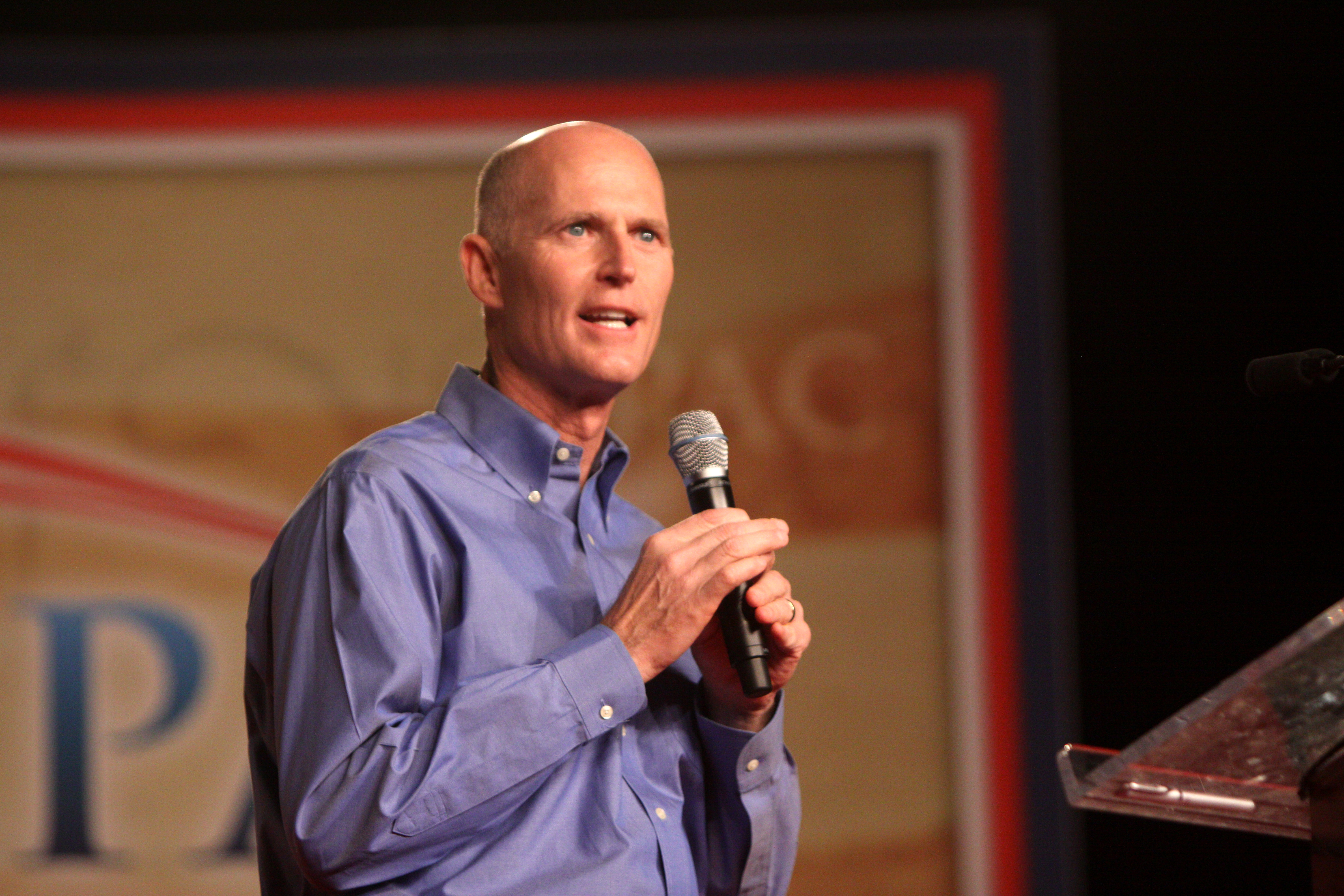Above photo: Gov. Rick Scott has signed Senate Bill 4, which will consolidate accreditation across the three universities in the USF System. The next step is appointing members to the committee to plan how to phase out separate accreditation. Courtesy of Gage Skidmore
By Jeffrey Waitkevich
Welcome to the beginning of the end of USF St. Petersburg’s separate accreditation.
It’s official. On March 10, Gov. Rick Scott signed off on Senate Bill 4, the bill that consolidated accreditation among the three universities in the USF System.
The first step is appointing members to the USF Consolidation Planning Study and Implementation Task Force, which was created to help reassure the St. Petersburg community that they would have a voice.
However, USF St. Petersburg is only guaranteed two of the members.
This mouthful of a committee will consist of USF system President Judy Genshaft, Martin Tadlock, interim regional chancellor at USF St. Petersburg, and Karen Holbrook, USF Sarasota-Manatee’s regional chancellor, along with 10 additional members from the three campuses appointed by legislative and university leaders.
Tadlock believes those leaders will begin appointing members within the next two weeks.
The 13 members will be tasked with creating the plan for consolidating accreditation.
Tadlock expects to be “involved to a great extent” throughout the process, but he hasn’t discussed it with Genshaft yet.
The committee has until Feb. 15, 2019, to submit a report to the USF Board of Trustees, which will recommend: degree programs, how to maintain each campus’ unique identity, each campus’ research capacity, how program and resources will be distributed, how to keep budget matters transparent and how programs will be developed and delivered, according to the legislation.
Then, the BOT will have until March 15, 2019, to create and submit a plan to implement the above recommendations, make a timeline so accreditation can be consolidated by June 30, 2020, reduce effects on current students and have USF operating as one accredited university by July 1, 2020.
OlUfunke Fontenot, interim vice regional chancellor of academic affairs, has been through a consolidation before at Albany State University in Georgia.
While the university was able to offer an easier transition and more programs, according to Fontenot, she said the lesson she learned was that it is “critical to build trust and address the human capital cost of consolidation.”
Some of the challenges she faced were the “blending of institutional missions and cultures,” the process being “highly emotionally charged, with significant toll on faculty and staff” and the “mutual suspicion and absence of trust.”
Sound familiar?
Many people at USF St. Petersburg and their allies – including Pinellas County government officials and business leaders – have strongly opposed the legislation for fear that USF St. Petersburg will return to the dark days when the administration in Tampa ruled over them with an iron fist.
Tadlock urges everyone to be patient, saying, “We have a little over two years to get to where we want to be.”
He also said he thinks that this consolidation will end up benefiting students.
“I’ve always said it is not a bad thing for students,” Tadlock said. “They will have a lot more options about the majors they want to choose.”
In regard to faculty and staff, Tadlock was less specific.
“There’s benefits,” he said, “and I’m sure those will be determined as we go through the process.”
Student body president David Thompson said that he is “very confident” that the consolidation will end up being a good thing but doesn’t think “any (current) students will notice any particular differences.”
He added that Rep. Chris Sprowls, R-Palm Harbor, and Sen. Jeff Brandes, R-St. Petersburg, “care about their campuses” and want their campuses to succeed.
However, Thompson’s term ends this semester, so student body president-elect Kaeden Kelso will be manning Student Government throughout most of the planning process.
In an email to The Crow’s Nest, Kelso stressed the importance of informing and conversing with students during the transition.
He also said that it is too early to say if the consolidation will benefit USF St. Petersburg and only time will tell.
“As of right now I will keep working as if it won’t change a thing,” Kelso said. “If something must change, (SG is) ready to adapt to the situation to continue our commitment to students.”
Mariah McQueen, who led the Diverge the Merge movement against consolidated accreditation, said, “This is disappointing but not over.”
She said she is “hoping for the best but cautious about the challenges ahead.” She also plans to leave the Diverge the Merge Facebook page up “as record of our resistance … because it deserves to be there.”



